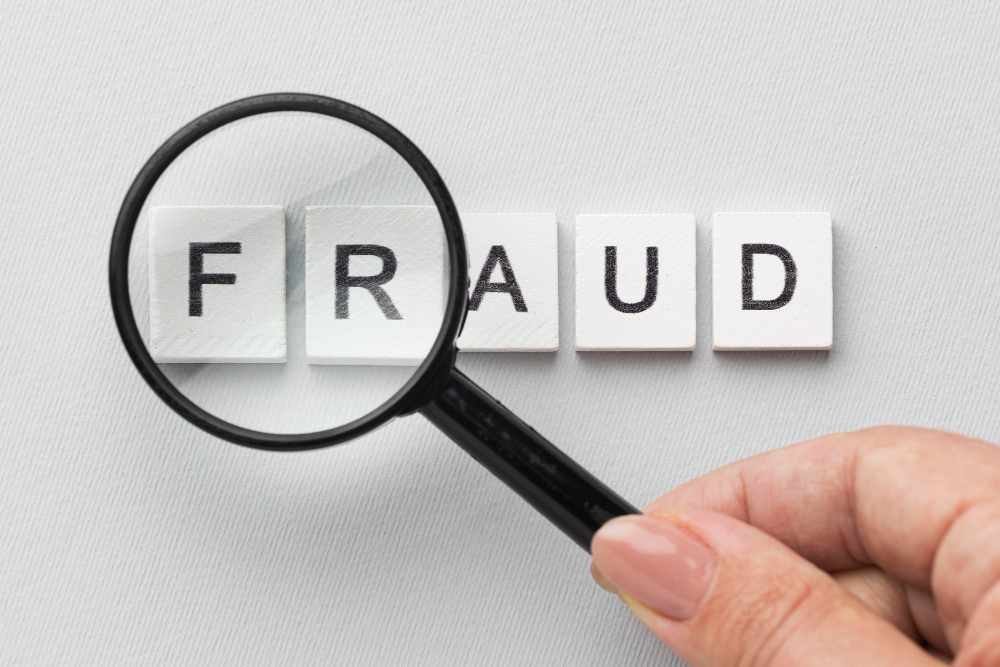In the heart of Nigeria’s complex economic journey lies a repeating cycle of hope and heartbreak, birthed by the promises of Ponzi schemes. The most recent is the CBEX saga.
These fraudulent ventures have become a recurring phenomenon in Nigeria, preying on the country’s socio-economic vulnerabilities and perpetuating financial ruin across families and communities.
Despite warnings from financial authorities, the appeal of “quick money” continues to override caution for many Nigerians. But how did this culture of Ponzi schemes take root in Nigeria?
Why is the country such a fertile ground for them? And most importantly, how can Nigerians protect themselves?
This article explores the historical development of Ponzi schemes in Nigeria, the economic and cultural environment that enables them, and actionable steps individuals can take to stay safe.
What Is a Ponzi Scheme?
A Ponzi scheme is a fraudulent investment operation where returns are paid to earlier investors using the capital of new investors, rather than profit earned.
The system depends entirely on the influx of new funds and collapses when the stream of new investors dries up.
Named after Charles Ponzi, who orchestrated one of the most famous schemes in the United States in the 1920s, Ponzi schemes are essentially unsustainable.

Yet, in Nigeria, this financial scam has evolved beyond a simple con—it has become a trend, a movement, and in some cases, a culture.
A Brief History of Ponzi Schemes in Nigeria
1. The Advent of MMM Nigeria (2016)
While Ponzi schemes had quietly existed in Nigeria for decades, the most impactful modern case was the arrival of MMM (Mavrodi Mundial Movement) in 2016. Founded by Russian Sergey Mavrodi, MMM promised Nigerians a 30% return on investment per month. It cleverly masked itself as a “mutual aid community,” convincing members that their contributions were donations, not investments.
At its peak, over 3 million Nigerians participated in MMM. The system worked temporarily, as early investors received their promised returns. But by December 2016, the system crashed—just before the Christmas holidays. Many Nigerians lost life savings, loans, and pensions.
2. Successors of MMM: Twinkas, Ultimate Cycler, and Givers Forum
Following MMM’s crash, a wave of copycat platforms emerged. Twinkas, Ultimate Cycler, Givers Forum, and Pennywise became household names. These schemes rode on the leftover trust from MMM, using aggressive marketing strategies and testimonials from supposed beneficiaries.
Each platform promised higher returns—sometimes up to 200%—and lasted only a few months before collapsing, often without warning.
3. Cryptocurrency-Inspired Ponzi Schemes
As crypto gained attention in Nigeria, Ponzi schemes evolved into blockchain-like platforms. Some, like RackSterli, posed as digital investment schemes with daily return projections. Others pretended to mine Bitcoin or trade forex. These platforms used tech jargon to mask their fraudulent core, fooling even digitally savvy Nigerians.
4. Religious and Community-Based Ponzi Schemes
Ponzi operators began exploiting trust within religious groups and ethnic communities. These platforms often recruited pastors, imams, or local influencers to endorse their schemes. This created a façade of credibility, which led many to invest without due diligence.
READ ALSO: Building Lasting Wealth: Why Time-Tested Investments Trump Get-Rich-Quick Schemes
Why Ponzi Schemes Thrive in Nigeria
Several economic, social, and psychological factors make Nigeria a fertile ground for Ponzi schemes:
1. High Poverty and Unemployment Rates
Over 40% of Nigeria’s population lives below the poverty line. When people struggle to meet basic needs, they are more likely to fall for financial promises that seem like a quick escape. Ponzi schemes offer a fantasy of instant wealth with no labor.
2. Financial Illiteracy
A large segment of the Nigerian population lacks understanding of financial principles like compound interest, risk assessment, and legitimate investment strategies. This knowledge gap makes it easier for fraudsters to lure unsuspecting people.
3. Distrust in Traditional Financial Institutions
Many Nigerians have had negative experiences with banks, microfinance institutions, or loan sharks.
The belief that formal financial systems are slow, exploitative, or unhelpful drives people to informal alternatives like Ponzi schemes, which appear more accessible and efficient.
4. Peer Pressure and Word-of-Mouth Hype
Ponzi schemes often go viral via word-of-mouth, WhatsApp broadcasts, and social media testimonials. Seeing family or friends benefit from the scheme builds trust and creates fear of missing out (FOMO).
5. Greed and the ‘Get-Rich-Quick’ Mentality
There’s a widespread desire in Nigeria to “blow” overnight. The culture of flashy success and societal pressure to “make it big” fuels risky financial behavior. Ponzi schemes tap into this ambition with the promise of fast wealth.
6. Weak Regulatory and Legal Frameworks
Despite efforts by the Securities and Exchange Commission (SEC) and the Economic and Financial Crimes Commission (EFCC), the regulation of Ponzi schemes remains reactive rather than preventive.
By the time action is taken, operators have usually disappeared with investor funds.
7. Use of Religion and Community Influence
Many schemes exploit the authority of religious leaders and community heads. When a pastor endorses a scheme during Sunday service or a market leader champions it in a meeting, people are likelier to trust and invest without questioning.
Psychological Tricks Ponzi Schemes Use
- Social Proof: Fake testimonials and success stories encourage others to join.
- Scarcity Tactics: Limited-time offers and countdowns push hasty decisions.
- Trust Transfer: Using known figures or brands to build false credibility.
- Blame-Shifting: Claiming system “glitches” or blaming the government when things go wrong.
Consequences of Ponzi Schemes in Nigeria
1. Financial Losses
Victims often lose life savings, pensions, school fees, and loans. The crash of MMM alone was estimated to have wiped out over ₦18 billion from Nigerians’ pockets.
2. Broken Trust
Ponzi schemes strain relationships, as many investors convince friends and family to join. When the schemes crash, blame games and broken friendships follow.
3. Mental Health Impact
There have been reports of depression, anxiety, and even suicide after Ponzi scheme crashes. Financial instability significantly affects emotional and psychological well-being.
4. Reduction in Investment Confidence
Ponzi schemes tarnish the reputation of legitimate investment platforms. Many Nigerians now fear putting money into any system, including mutual funds or fintech startups.
How to Protect Yourself from Ponzi Schemes
1. Learn the Red Flags
- Promises of high or guaranteed returns with little or no risk.
- No clear business model explaining how profits are made.
- Pressure to recruit others as part of the earning model.
- Lack of regulation or transparency.
- Anonymous owners or unclear leadership.

2. Conduct Proper Research
Before investing, check if the platform is registered with Nigeria’s SEC or regulated by the Central Bank. Look up reviews from multiple sources—not just social media.
3. Never Invest Based on Emotion
Don’t let excitement, pressure from friends, or flashy adverts cloud your judgment. Always sleep on investment decisions, especially if they’re time-sensitive.
4. Diversify Your Income and Investment
Never put all your money in one venture—especially one that’s unregulated or new. Build a portfolio with diverse assets: savings, insurance, stocks, mutual funds, or real estate.
5. Educate Yourself and Others

Financial literacy is the best defense. Learn how interest rates, risk, and compounding work. Share this knowledge within your circle to prevent more people from falling prey.
6. Trust Only Regulated Platforms
Look for investment platforms with real offices, transparent business models, customer service, and official documentation. Legitimate businesses are never afraid to show their books.
Government and Regulatory Efforts
Nigeria’s SEC has repeatedly warned against Ponzi schemes and publishes a list of illegal investment operators. The EFCC has also prosecuted several scheme operators. However, enforcement remains a challenge due to:
- Limited awareness among the populace
- Delay in tracing operators
- Digital anonymity of platforms
- Low penalties for fraudsters
Stronger regulations and real-time monitoring of suspicious financial flows could help prevent future outbreaks.
Rewriting the Nigerian Investment Culture
Ponzi schemes continue to exploit Nigeria’s economic struggles, cultural trust networks, and hunger for financial independence.
From MMM to more recent crypto-inspired scams, they follow the same cycle—promise, excite, collapse, and vanish.
To break this cycle, financial education must become a national priority. Nigerians must shift from a “quick money” mindset to long-term wealth building through credible, sustainable means.
The public, private, and regulatory sectors must collaborate to promote trust in formal investment and decisively punish fraudulent actors.
As the saying goes, “If it looks too good to be true, it probably is.” In a world full of financial promises, caution is not just wisdom—it’s survival.


